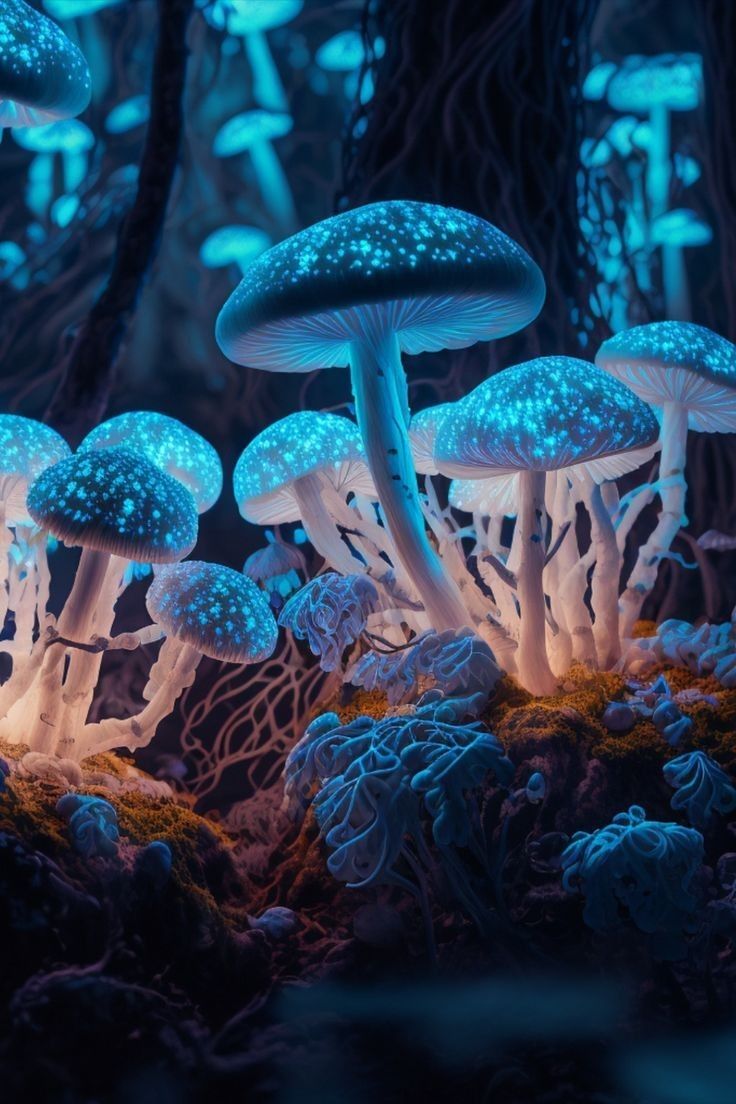Alzheimer’s disease is a progressive neurodegenerative disorder characterized by memory loss, cognitive decline, and changes in behavior. It affects millions worldwide, placing immense emotional and financial burdens on patients and caregivers alike. Conventional treatments primarily focus on managing symptoms, often through medications like cholinesterase inhibitors and NMDA receptor antagonists. While these treatments provide some relief, they cannot halt or reverse the progression of the disease. This limitation has prompted researchers and practitioners to explore alternative and complementary therapies. Among the most promising are psychedelic compounds, specifically psilocybin from magic mushrooms and ibogaine, which show potential in improving cognitive function, emotional well-being, and overall quality of life for individuals with Alzheimer’s.
Psilocybin, the psychoactive component in magic mushrooms, has gained attention for its ability to promote neuroplasticity—the brain’s capacity to reorganize and form new neural connections. Studies indicate that psilocybin enhances dendritic growth, synaptic density, and communication between neurons. In Alzheimer’s patients, these effects could potentially counteract the neural degeneration responsible for memory loss and cognitive decline. Additionally, psilocybin therapy has been linked to reductions in anxiety, depression, and agitation, which are common emotional symptoms accompanying Alzheimer’s. By supporting both neurological and emotional health, psilocybin presents a multifaceted approach to Alzheimer’s care.
Ibogaine, derived from the African iboga plant, complements psilocybin by modulating neurotransmitter systems such as serotonin, dopamine, and glutamate. These neurotransmitters play critical roles in memory, motivation, and emotional regulation. For patients with Alzheimer’s, ibogaine may help restore neurotransmitter balance, reduce cognitive fluctuations, and enhance attention and mental clarity. Anecdotal evidence from therapeutic settings suggests that ibogaine administration can lead to temporary improvements in cognitive engagement and reduced confusion, offering hope for patients seeking alternatives to conventional pharmacological interventions.
Combining psilocybin and ibogaine can provide synergistic benefits. While psilocybin promotes neuroplasticity and emotional insight, ibogaine supports neurotransmitter balance and cognitive stability. This dual approach addresses both the neurological deterioration and emotional disturbances characteristic of Alzheimer’s. Patients may experience improved memory function, better mood regulation, reduced agitation, and increased engagement in daily activities, enhancing overall quality of life.
For those seeking safe and reliable access to therapeutic-grade psychedelics in the UK, UKMUSHROOM.UK offers a range of products suitable for clinical or personal exploration. Options include buy ibogaine in the UK, mushroom edibles, magic truffles for sale UK, mushroom grow kits UK, fresh mushrooms UK, and mescaline cacti UK. These products are meticulously sourced and prepared to ensure consistent potency, which is crucial for therapeutic applications.
Safety is a primary concern when administering psychedelic therapy, especially for elderly patients or those with comorbidities. Both psilocybin and ibogaine can induce intense psychological experiences. Supervised sessions with trained facilitators or medical oversight are essential to minimize risks and maximize therapeutic outcomes. Pre-treatment medical screening is recommended to identify contraindications, such as cardiovascular conditions or severe psychiatric disorders. Post-session integration is equally important, helping patients translate insights from their psychedelic experience into practical strategies for cognitive and emotional improvement.
Scientific research continues to support the potential of these compounds in Alzheimer’s care. Studies on psilocybin indicate improvements in mood, emotional resilience, and social engagement, while preclinical studies suggest neuroprotective effects that may slow the progression of neurodegenerative diseases. Ibogaine research highlights its capacity to stabilize neurotransmitter systems, enhancing mental clarity and focus. While large-scale clinical trials are still limited, the existing evidence provides a strong rationale for further exploration and responsible therapeutic use.
Psychedelic therapy also offers social and emotional benefits beyond direct cognitive effects. Alzheimer’s patients often experience social withdrawal, irritability, and frustration due to memory loss. Psilocybin and ibogaine therapy can reduce these behavioral symptoms, promoting social interaction and communication. Enhanced engagement not only benefits patients but also eases caregiver burden, creating a more supportive environment for ongoing care.
Education and reliable information are essential components of safe psychedelic use. Reputable sources such as Wikipedia, WorldScientificImpact.org, and buyoneupmushroombar.us provide scientific data, therapeutic guidance, and historical context. Combined with access to high-quality products from UKMUSHROOM.UK, patients and caregivers are equipped to explore psychedelic therapies responsibly and effectively.
In conclusion, psilocybin magic mushrooms and ibogaine present promising, natural alternatives for Alzheimer’s disease management. Their combined neuroplastic, neurochemical, and emotional benefits offer hope for improved cognitive function, emotional stability, and social engagement. Safe access through UKMUSHROOM.UK, guided sessions, and educational resources ensure responsible use. As research advances, these psychedelics may become integral to holistic Alzheimer’s care, complementing conventional treatments and enhancing quality of life for patients and caregivers alike.

No Responses